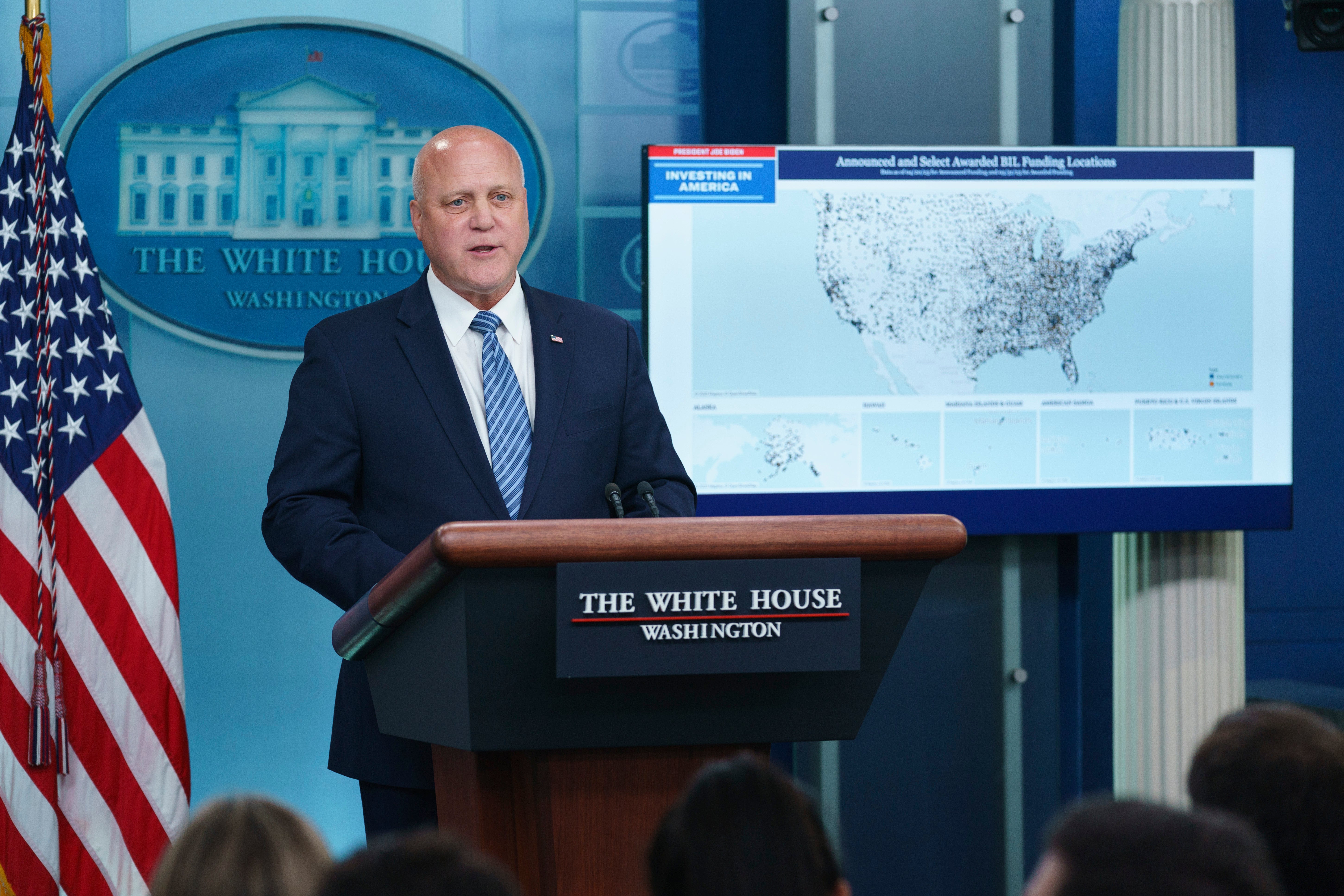Commerce Department announces nearly $1 billion in grants for 'middle mile' internet access
The federal effort to expand internet access to every U.S. home has taken a major step forward with the announcement of $930 million in grants to shore up connections in dozens of places where significant connectivity gaps persist

Your support helps us to tell the story
From reproductive rights to climate change to Big Tech, The Independent is on the ground when the story is developing. Whether it's investigating the financials of Elon Musk's pro-Trump PAC or producing our latest documentary, 'The A Word', which shines a light on the American women fighting for reproductive rights, we know how important it is to parse out the facts from the messaging.
At such a critical moment in US history, we need reporters on the ground. Your donation allows us to keep sending journalists to speak to both sides of the story.
The Independent is trusted by Americans across the entire political spectrum. And unlike many other quality news outlets, we choose not to lock Americans out of our reporting and analysis with paywalls. We believe quality journalism should be available to everyone, paid for by those who can afford it.
Your support makes all the difference.The massive federal effort to expand internet access to every home in the U.S. took a major step forward on Friday with the announcement of $930 million in grants to shore up connections in remote parts of Alaska, rural Texas and dozens of other places where significant gaps in connectivity persist.
The so-called middle mile grants, announced by the Department of Commerce, are meant to create large-scale networks that will enable retail broadband providers to link subscribers to the internet. Department officials likened the role of the middle mile — the midsection of the infrastructure necessary to enable internet access, composed of high-capacity fiber lines carrying huge amounts of data at very high speeds — to how the interstate highway system forged connections between communities.
“These networks are the workhorses carrying large amounts of data over very long distances,” said Mitch Landrieu, the White House’s infrastructure coordinator, in a media Zoom call. “They’re the ones that are bridging the gap between the larger networks and the last mile connections, from tribal lands to underserved rural and remote areas to essential institutions like hospitals, schools, libraries and major businesses.”
The grants were awarded to a cross-section of state government agencies, tribal governments and telephone and electric cooperatives. They are intended to trigger the laying of 12,000 miles (19,300 kilometers) of new fiber through 35 states and Puerto Rico.
The largest grant, of nearly $89 million, was awarded to an Alaska-based telecommunications company that hopes to build a fiber network through a remote section of the state where an estimated 55% of people lack access to basic internet.
The expansion is one of several initiatives pushed through Congress by President Joe Biden's administration to expand high-speed internet connectivity to the entire country.
“The Middle Mile program is a force multiplier in our efforts to connect everyone in America,” Commerce Assistant Secretary Alan Davidson said. “These grants will help build the foundation of networks that will in turn connect every home in the country to affordable, reliable, high-speed Internet service.”
The grants were set in motion by the $65 billion allocated by Congress for broadband as part of the infrastructure measure Biden, a Democrat, signed into law in 2021. Most of that money, $42.5 billion, will be distributed to states as part of the Broadband Equity, Access and Deployment, or BEAD, program partly based on new federal maps identifying areas that aren’t connected.
States’ allotments from BEAD are expected to be announced at the end of this month. States will then run their own programs to identify recipients that would then build out last mile networks to unserved communities.
Winners of the middle mile grants announced Friday will have up to five years to complete their projects once they receive those funds, though a one-year extension may be requested under certain conditions.
___
Harjai reported from Los Angeles.